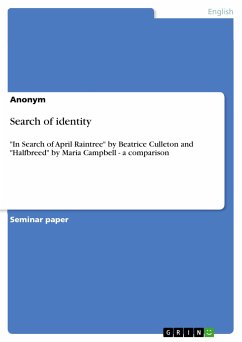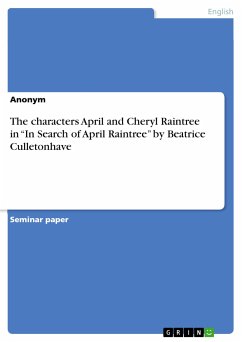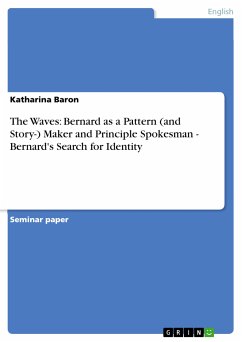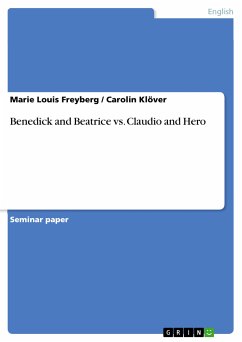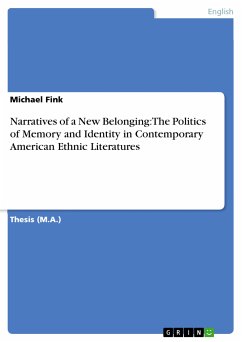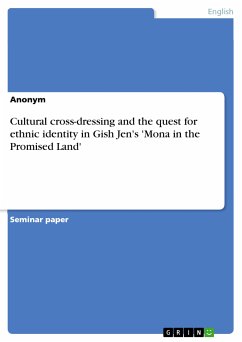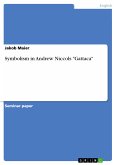Seminar paper from the year 2011 in the subject American Studies - Literature, Ernst Moritz Arndt University of Greifswald, language: English, abstract: In this paper I will discuss the facts about finding the own identity as a mixed race woman in Canada through out two books: Halfbreed by Maria Campbell In Search of April Raintree by Beatrice Culleton Maria Campbell’s Halfbreed is the story of her own life and with it the book can be seen as a biography, whereas In Search of April Raintree by Beatrice Culleton is a novel about mixed blood sisters living in Winnipeg. This essay will compare and contrast these two books as illustrations of life as a “half-breed” in western Canada. Most importantly, attention will be directed to their conclusions in finding the own identity. While reading this essay, you will notice that I have put my main focus on the book by Beatrice Culleton. For many Canadians the distinction is taken to be white or black, between ‘Status Indians’ legally recognized as native and the remainder of the population. Indians carry a status card and are entitled to exemption from sales tax, special education funding, a vote in band council elections and other legal rights that differentiate them from other Canadians. There are a lot of individuals who do not fall into either of theses categories, while the legal divisions between these two groups are clear. As a group the Métis are neither Europeans nor Natives, but in their bloodlines they contain the blood, of both of these two ethnic groups. Similar, with fur traders working throughout the Canadian wilderness for centuries, there are many people who share European and Native ancestry. Both books end with a form of “healing”, finding their own identity, for the main characters, April and Maria. The roots and origins of these characters developments will be examined.
Bitte wählen Sie Ihr Anliegen aus.
Rechnungen
Retourenschein anfordern
Bestellstatus
Storno

